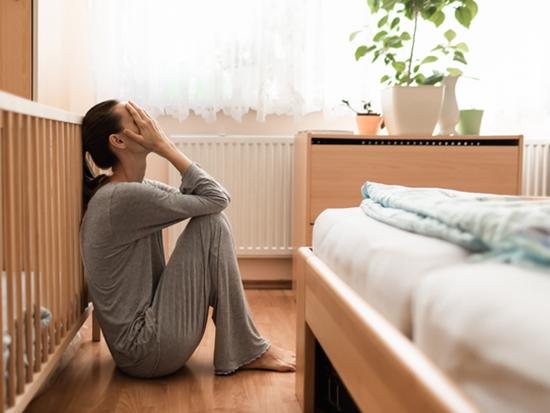 UAB women’s health expert discusses the signs and symptoms of postpartum depression.The postpartum period, which includes the first few months following pregnancy, is a time of adjustment both physically and emotionally for moms. Many mothers may experience changes in sleep, energy level and appetite as their bodies and routine acclimate to their new normal.
UAB women’s health expert discusses the signs and symptoms of postpartum depression.The postpartum period, which includes the first few months following pregnancy, is a time of adjustment both physically and emotionally for moms. Many mothers may experience changes in sleep, energy level and appetite as their bodies and routine acclimate to their new normal.
However, the postpartum period can also bring along additional maternal health issues that are important to address. One of the most common of these conditions is postpartum depression, which affects one in seven women in the United States.
Sima Baalbaki, M.D., assistant professor in the University of Alabama at Birmingham Department of Obstetrics and Gynecology, discusses the signs, symptoms and treatment of PPD.
“PPD often gets brushed off as post-pregnancy ‘blues,’ but it is a serious health condition that moms and their support system need to be aware of,” Baalbaki said. “Knowing the signs and symptoms of PPD can help prevent life-or-death situations.
Postpartum Blues Symptoms
Baalbaki says “postpartum blues” can be thought of a milder version of PPD. It is typically associated with an overall mild depressive state that starts two to three days after delivery. Women with postpartum blues may experience feelings of sadness, crying episodes, extra fatigue and trouble sleeping. However, these symptoms resolve within two weeks of delivery and do not require major intervention.
Postpartum Depression Symptoms
PPD is a more severe and prolonged depressive episode that can include thoughts of harming either oneself or others. Professional intervention, such as counseling and medication, are often needed to treat PPD. Symptoms can develop within the first few weeks postpartum but could appear up to a year after birth. Baalbaki notes that women with a history of anxiety and depression are at an increased risk of developing PPD.
Common symptoms include:
- Withdrawal from support system
- Severe mood swings
- Extended depressive episodes
- Severe anxiety or panic attacks
- Significant irritability or anger
- Difficulty concentrating
- Significant lack of energy
- Sleeping too little or too much
- Changes in eating habits
- Feelings of inadequacy or shame
- Difficulty bonding with baby
- Thoughts of harming oneself or baby
- Recurring thoughts of death or suicide
Treatment
Untreated postpartum depression can last months or years. It can also increase to a level that impacts a mom’s ability to do daily tasks or care for their baby.
“Many new moms who are depressed do not realize it; others are embarrassed to admit it or ask for help,” Baalbaki said. “It is important for a mom’s support system to be aware of the signs of PPD and intervene if needed.”
If a new mom or their support system is concerned about PPD, the first step is to ensure the mom and baby are safe. If a mom has thoughts of hurting themselves or someone else, seek professional care immediately. Reaching out to the mom’s obstetrician can be a good first step as they can connect moms to counseling resources and provide medical treatment if needed.
